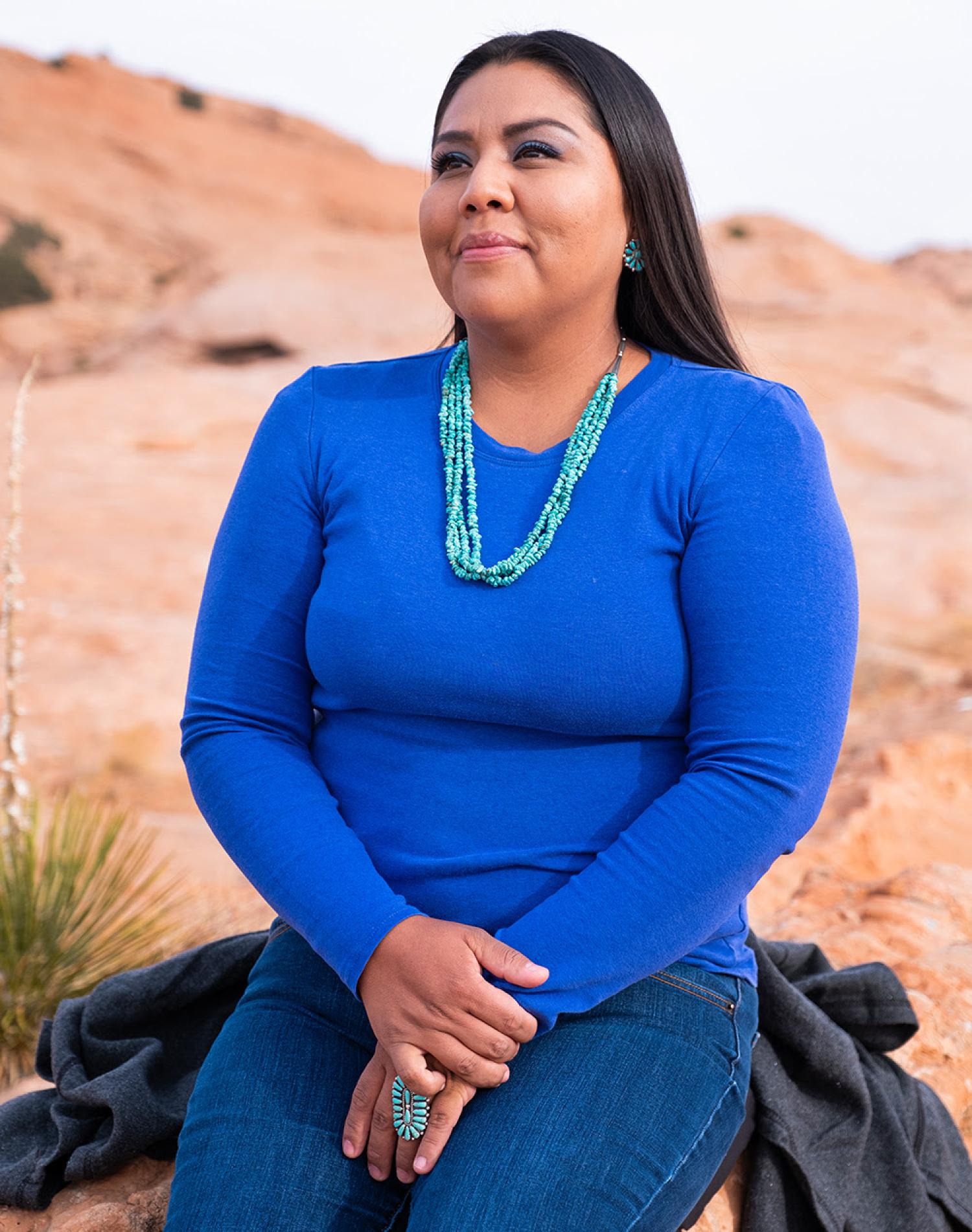Crystal Tulley-Cordova
- Principal Hydrologist, Navajo Nation Department of Water Resources - Water Management Branch
- Navajo Nation

Crystal Tulley-Cordova, PhD, MWR is a Principal Hydrologist in the Navajo Nation Department of Water Resources - Water Management Branch. She is an enrolled member of the Navajo Nation. She received a doctoral degree in Geology and an Interdisciplinary Graduate Certificate in Sustainability from the University of Utah. She has received a Master of Water Resources in Hydroscience and a Bachelor of Science in Earth and Planetary Sciences from the University of New Mexico. She has worked collaboratively with Navajo Nation partners on water-related research since 2013. Her research interests include learning more about the Navajo Nation water budget, namely the interactions of precipitation, surface, and ground waters, and the nexus with Navajo communities. Her past research consisted of three projects conducted in collaboration with the Navajo Nation Water Management Branch, Navajo Tribal Utility Authority, and Navajo Environmental Protection Agency; they are entitled (1) Navajo Nation, USA, Precipitation Variability from 2002 to 2015, (2) Stable isotopes in precipitation and associated waters: Recording the North American monsoon in Arizona, New Mexico, and Utah, and (3) Groundwater sustainability and susceptibility to modern contamination in Fort Defiance, AZ. Crystal has a passion for working with tribal communities. She realizes the importance to help tribal nations dependent on water resources understand the effects of hydroclimatic changes on their tribal homelands. Crystal hopes the knowledge and experiences she gained over the years will help her assist Navajo communities to use their current knowledge about water to build sustainable water projects, seek funding for water-related research, and protect and manage water resources across the Navajo Nation.
Abstract
Inter- and intra- annual precipitation variability observed in the Navajo Nation
The drought conditions in the Navajo Nation are severe to exceptional, and observed across the more than 70,000 square kilometers. The Navajo Nation is the largest land-based tribe in the United States that experiences impacts brought on by subtle changes in precipitation. Evaluation of precipitation from 2002 to 2015 water years across at 90 precipitation sites in Arizona, Utah, and New Mexico was completed. Five sub-regions of differing precipitation climatology were identified using k-means clustering, a vector quantization method. Spatial and temporal trends of precipitation variability were conducted with three climate indices and showed strong winter precipitation association to the Pacific North American teleconnection pattern for all regions; less correlation between climate indices and summer precipitation were observed; however, modest correlations with Pacific Decadal Oscillation were witnessed. Inter- and intra- annual precipitation variability contributes to additional climate change impacts observed.
Resource Links Shared During Presentation:
https://storymaps.arcgis.com/stories/1b4dc0d978c74d97a559e615730d4cd4
https://online.flippingbook.com/view/167753/16/
https://onlinelibrary.wiley.com/doi/full/10.1111/j.1936-704X.2018.03273.x
Universal Access to Clean Water in Indian Country Universal Access to Clean Water in the Colorado River Basin
- (fact sheet)
- http://www.naturalresourcespolicy.org/docs/water-tribes/universal-access-to-clean-water-9-1-final.pdf
- Webinar, Universal Access to Clean Water in the Colorado River Basin (December 16, 2020) Universal Access to Clean Water for Tribes in the Colorado River Basin (March 2020)
- https://us02web.zoom.us/rec/play/g5EkEpo0XRJnhcpfgwri69g0yQ5igfxIbr1T1iFMZ7GKpIZH0IeTzvKHLanOGKpvj70xJcmOHwKZoP8G.sQP5pP5VF2u1i13P?startTime=1608145233000
http://www.naturalresourcespolicy.org/projects/water-tribes-colorado-river-basin/3.20-wti-report-executive-summary-final.pdf

